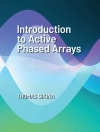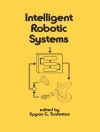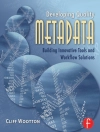This book addresses coding, a new solution to the major challenge of communicating more bits of information in the same radio spectrum.
* Explores concepts and new transmission methods that have arisen in the last 15 years
* Discusses the method of faster than Nyquist signaling
* Provides self-education resources by including design parameters and short MATLAB routines
Bandwidth Efficient Coding takes a fresh look at classical information theory and introduces a different point of view for research and development engineers and graduate students in communication engineering and wireless communication.
विषयसूची
Preface ix
1 Introduction 1
1.1 Electrical Communication, 2
1.2 Modulation, 4
1.3 Time and Bandwidth, 9
1.4 Coding Versus Modulation, 13
1.5 A Tour of the Book, 14
1.6 Conclusions, 15
2 Communication Theory Foundation 17
2.1 Signal Space, 18
2.2 Optimal Detection, 24
2.3 Pulse Aliasing, 35
2.4 Signal Phases and Channel Models, 37
2.5 Error Events, 43
2.6 Conclusions, 50
3 Gaussian Channel Capacity 58
3.1 Classical Channel Capacity, 59
3.2 Capacity for an Error Rate and Spectrum, 64
3.3 Linear Modulation Capacity, 68
3.4 Conclusions, 72
4 Faster than Nyquist Signaling 79
4.1 Classical FTN, 80
4.2 Reduced ISI-BCJR Algorithms, 87
4.3 Good Convolutional Codes, 101
4.4 Iterative Decoding Results, 110
4.5 Conclusions, 114
5 Multicarrier FTN 127
5.1 Classical Multicarrier FTN, 128
5.2 Distances, 134
5.3 Alternative Methods and Implementations, 138
5.4 Conclusions, 143
6 Coded Modulation Performance 145
6.1 Set-Partition Coding, 146
6.2 Continuous Phase Modulation, 153
6.3 Conclusions for Coded Modulation; Highlights, 161
7 Optimal Modulation Pulses 163
7.1 Slepian’s Problem, 164
7.2 Said’s Optimum Distance Pulses, 177
7.3 Conclusions, 185
Index 190
लेखक के बारे में
JOHN B. ANDERSON is the Ericsson Chair in Digital Communication at Lund University in Sweden. He received his Ph.D. in electrical engineering from Cornell University in 1972. His research work is in coding and communication algorithms, bandwidth-efficient coding, and data compression. Dr. Anderson served as President and Vice President of the IEEE Information Theory Society, and in 1983 and 2006 was Co-Chair of the IEEE International Symposium on Information Theory.
He served on the Publications Board of IEEE on three occasions, and was
Editor-in-Chief of IEEE Press during 1994-96 and 2012-13. He won the Humboldt Research Prize in 1991. Dr. Anderson is the author of two other Wiley-IEEE Press titles: Understanding Information Transmission (2005) and Digital Transmission Engineering, Second Edition (2005).












